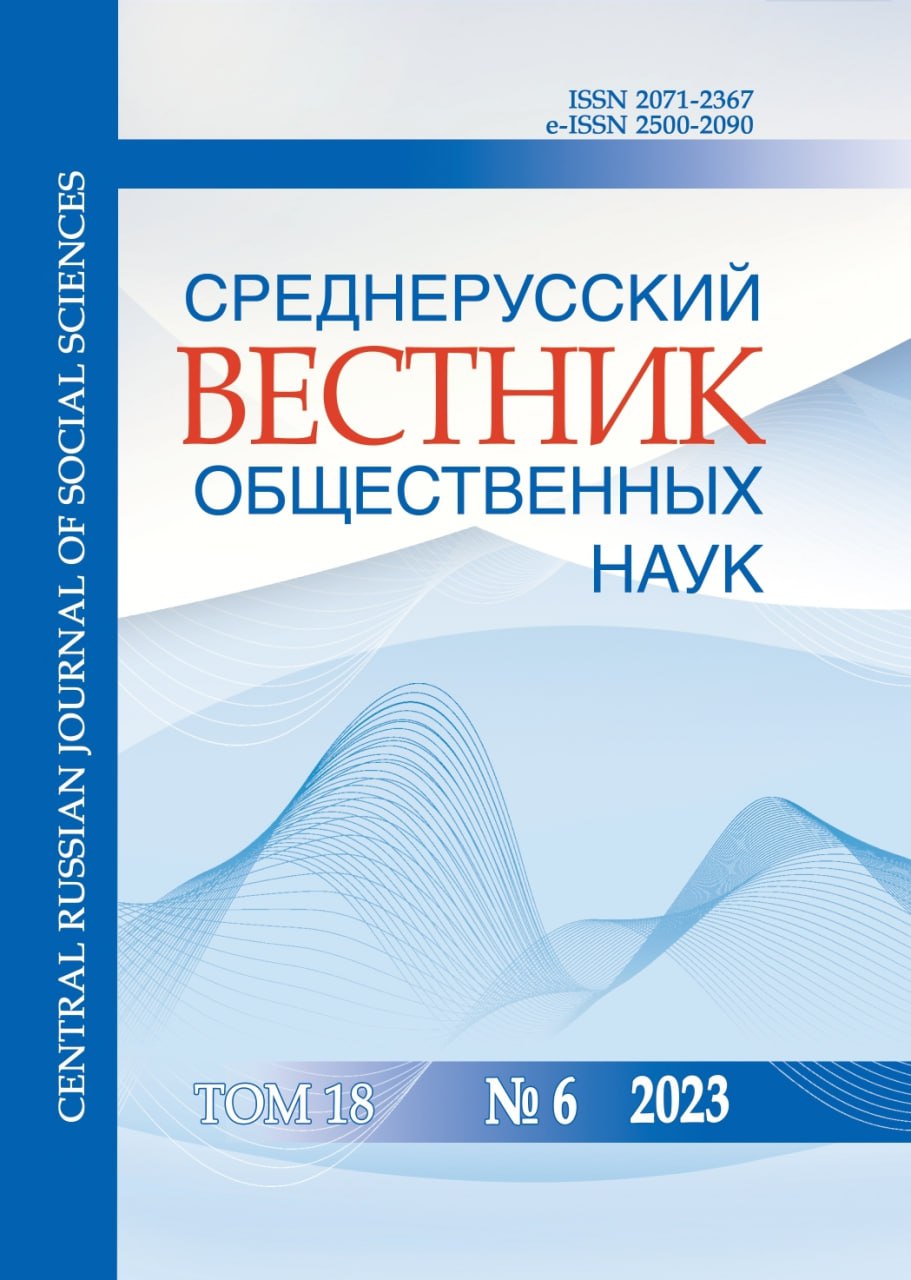Financial inclusion as a factor of socio-economic development
DOI: 10.22394/2071-2367-2023-18-6-69-87 EDN: MAOFAE
Keywords:
financial inclusion, financial exclusivity, economic development, sustainable development, inclusive growth, socio-economic developmentAbstract
The purpose of the article is to reveal scientific and practical approaches to the definition of the concept and place of financial inclusion in the system of factors of socio-economic development. The methodology of the research is based on the application of methods of theoretical generalization and abstract-logical analysis in the systematization and generalization of scientific approaches to understanding financial inclusion. As a result, we have studied the evolution of the concept of «inclusion» from the sphere of analysis of social processes at the level of social groups (including various social relations) to the macroeconomic level. It is revealed that various interpretations of the concept of «financial inclusion» contain its definition as a «process», «stage» or «state» (development). Financial inclusion is established to be one of the factors of economic development, and also the need to study the role of financial inclusion among the factors of socio-economic development is justified. The author's definition of the concept of financial inclusion is proposed. An alternative view on the definition of financial inclusion is substantiated based on its opposite – financial exclusivity, which is either voluntary (self-exclusivity) or compulsory and is determined by four groups of reasons. The consensus formed in the scientific literature on the three main components of financial inclusion: coverage, use and quality of financial services is analyzed. Positive factors and risks of financial inclusion development, as well as negative aspects of financial exclusivity are identified.
References
Дубова, С.Е. Факторы финансовой инклюзивности в контексте теории финансового развития / С.Е. Дубова // Банковские услуги. – 2022. – № 8. – С. 25–30. – DOI: 10.36992/2075-1915_2022_8_25.
Цирканова, Л.М. Финансовая инклюзия как тренд развития мировой экономики / Л.М. Цирканова, К.Т. Тлупова, З.М. Казова // Журнал прикладных исследований. – 2023. – № 1. – С. 22–27. – DOI: 10.47576/2712-7516_2023_1_22.
Шакер, И.Е. Концепт «финансовая инклюзивность»: инструментальный анализ в парадигме устойчивого развития //
И.Е. Шакер / Банковские услуги. – 2022. – № 6. – С. 29–34.
Acemoglu D., Robinson J.A. (2012) Why Nations Fail: The Origins of Power, Prosperity and Poverty. – 1st ed. New York: Crown, 2012. – 529 p.
Amidžić G., Massara A., Mialou A. (2014) Assessing Countries' Finan-cial Inclusion Standing – A new Composite Index. IMF Working Paper. – WP/14/36, 2014, february. – 31 p.
Anand R., Mishra S., Peiris S.J. (2013) Inclusive Growth Revisited: Measurement and Determinants. Poverty reduction and management net-work. Economic Premise. – World Bank, № 122. – 7 p. – URL: https://www.worldbank.org/content/dam/Worldbank/document/Poverty%20documents/EconomicPremise_July2013_No22.pdf (дата обращения: 20.05.2023).
Atkinson A.B., Marlier E. (2010) Analysing and Measuring Social In-clusion in a Global Context. United Nations. – New York. – 82 р.
Demirguc-Kunt A., Klapper L., Singer D. (2017) Financial Inclusion and Inclusive Growth. A Review of Recent Empirical Evidence. Policy Re-search Working Paper 8040. The World Bank. – 27 p. – URL: https://openknowledge.worldbank.org/bitstream/handle/10986/26479/WPS8040.pdf?sequence=1&isAllowed=y (дата обращения: 09.06.2023).
Gupta J., Vegelin C. (2016) Sustainable development goals and inclu-sive development. International Environmental Agreements: Politics, Law and Economics. – Vol. 16. – Issue 3. – P. 433–448. – URL: https://link.springer.com/article/10.1007/s10784-016-9323-z (дата обращения: 14.06.2023).
Landchovichina E., Lundstrom S., Garrido L. (2009) What is Inclusive Growth? The World Bank note. – 16 p. – URL: https://mronline.org/wp-content/uploads/2017/10/WhatIsInclusiveGrowth20081230.pdf (дата обращения: 28.05.2023).
Dubova, S.E. (2022) Faktory` finansovoj inklyuzivnosti v kontekste teorii finansovogo razvitiya Factors of financial inclusion in the context of the theory of financial development // Bankovskie uslugi Banking ser-vices. – № 8. – Р. 25-30. (In Russ.)
Tsirkunova, L.M., Tlupova, K.T., Kazova, Z.M. (2023) Finansovaya inklyuziya kak trend razvitiya mirovoj e`konomiki Financial inclusion as a trend in the development of the world economy // Zhurnal prikladny`x issledovanij Journal of Applied Research. – № 1. – Р. 22-27. – (In Russ.)
Shaker, I.E. (2022) Koncept «finansovaya inklyuzivnost`»: instrumen-tal`ny`j analiz v paradigme ustojchivogo razvitiya The concept of "finan-cial inclusion": instrumental analysis in the paradigm of sustainable devel-opment // Bankovskie uslugi Banking services. – № 6. – Р. 29-34. (In Russ.)

Downloads
Published
How to Cite
Issue
Section
License
Copyright (c) 2023 Lazareva I.E

This work is licensed under a Creative Commons Attribution-NonCommercial 4.0 International License.



